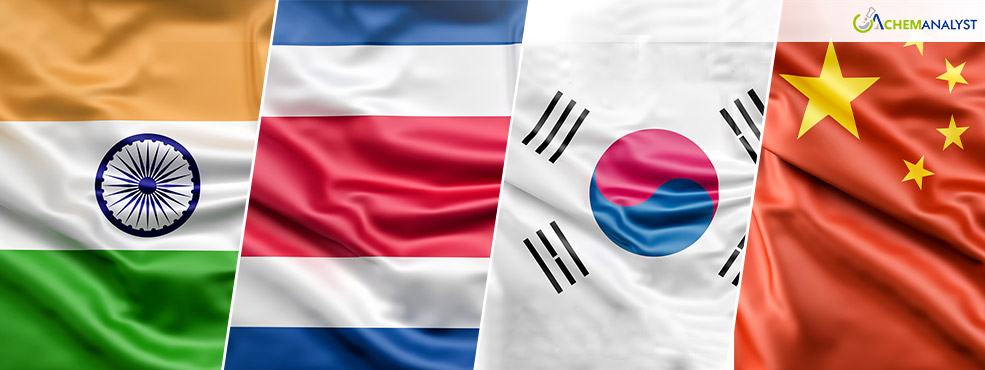Welcome To ChemAnalyst

India has recently imposed an anti-dumping duty of up to USD 557 per tonne on Epichlorohydrin, a chemical primarily used in the adhesive industry, imported from China, South Korea, and Thailand. This duty, effective for the next five years, is intended to protect Indian manufacturers from the adverse impacts of low-cost imports. The decision was formalized through a notification by the Department of Revenue, stating, “The anti-dumping duty imposed under this notification shall be levied for a period of five years (unless revoked, superseded, or amended earlier).”
Epichlorohydrin, a crucial raw material in adhesives and other products, was reportedly being imported from these countries at prices below the typical market rates, which raised concerns for Indian producers. This undercutting not only affects the pricing structure of domestic products but can also threaten the long-term viability of the domestic adhesive industry. The Directorate General of Trade Remedies (DGTR), which is the commerce ministry’s investigation wing, launched an inquiry into this matter and found that the influx of these cheap imports was indeed harming the local industry. Following this investigation, DGTR recommended the imposition of the anti-dumping duty to mitigate the negative impacts of these imports on India’s domestic market.
Anti-dumping duties are levied to counteract imports priced lower than the fair market value, which can disrupt domestic industries and lead to unfair competition. This practice is supported by the World Trade Organization (WTO), headquartered in Geneva, which allows member countries to impose anti-dumping duties under its multilateral trade regime. By implementing these duties, countries seek to create a balanced trade environment that offers fair opportunities for both domestic and foreign businesses. Specifically, such duties help establish a level playing field for Indian manufacturers who otherwise might struggle to compete against international producers offering products at artificially low prices.
India has been actively using anti-dumping measures across various industries to protect its domestic market from the flood of inexpensive imports. In particular, the country has frequently imposed anti-dumping duties on goods from China, which is a major exporter to India and often the source of low-cost products that can destabilize local industries. This latest measure against Epichlorohydrin imports aligns with India’s broader efforts to address unfair trade practices and bolster its manufacturing sector, ensuring that local producers are not overwhelmed by foreign competition.
Anti-dumping investigations and subsequent duties serve a crucial role in economic strategy by preserving the stability of domestic markets and preventing foreign companies from engaging in predatory pricing. They are instrumental in supporting the viability of local businesses, promoting fair trade practices, and securing jobs within the industry. By imposing this duty on Epichlorohydrin, India not only takes a stand for fair competition but also reinforces its commitment to fostering a sustainable and competitive domestic market.
Through these protective measures, India aims to encourage growth and investment in its industries, ensuring a robust manufacturing ecosystem that can withstand global pressures. The anti-dumping duty on Epichlorohydrin, therefore, is one of many steps taken by the Indian government to safeguard its economic interests and support the development of a resilient, self-sustaining industrial base in the country.
We use cookies to deliver the best possible experience on our website. To learn more, visit our Privacy Policy. By continuing to use this site or by closing this box, you consent to our use of cookies. More info.
